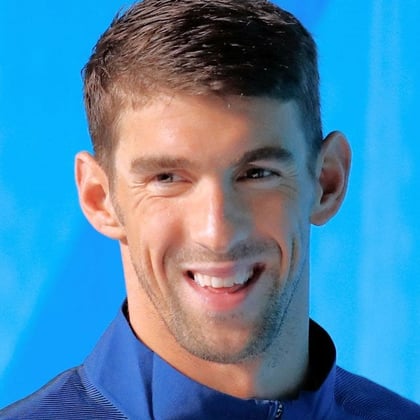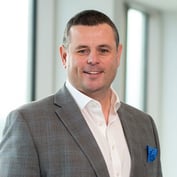For years, world champion swimmer Michael Phelps, who won a record 28 Olympic medals, would look in the mirror and see a swimmer rather than a person.
After a mental health crisis and 45 days in a treatment center nearly a decade ago, “I felt like a different human,” the 23-time Olympic gold medalist told the audience Thursday at Charles Schwab’s Impact conference in Philadelphia.
Phelps, 38, shared several lessons on finding success, both in achieving specific goals and in life overall, as he recounted his legendary swimming career and mental health challenges.
Finding the Right People
Phelps’ story illustrates the importance of finding the right people, both professionally and personally.
His first step as a swimmer came at age 7 when his mother enrolled him and his sisters in lessons. The future Olympian was afraid to get his face wet, so his teacher flipped him on his back and allowed him to get comfortable in the water. When he overcame his fear, “I just flipped over, and the rest is … history,” he recalled.
That early teacher, Cathy Bennett, now serves as programming director at the Michael Phelps Foundation, which offers a learn-to-swim curriculum through various nonprofits.
Another early figure in Phelps’ journey became the pillar in his career, as well as a father figure and now grandfather figure to his children. Bob Bowman, Phelps’ only coach from age 11, remained in that role throughout his roughly 20-year career, helping the young swimmer achieve his formidable goals.
“What coach-athlete relationship can you find that’s lasted more than two decades?” he asked.
“We had so many growth opportunities that we had to go through,” Phelps added, noting their relationship evolved as Phelps grew into young adulthood. “There’s not a person on this planet who could have coached me to the success that I had but him. He was the only coach.”
Working Toward Goals
“Everything that I learned in the early stages of my career were things that I almost perfected or sharpened throughout my career,” Phelps said. “The goal setting that I was taught at the age of 11.
“I think that’s where the Olympic dream started from,” Phelps recalled in the onstage conversation with fellow Olympic gold-medal swimmer Rowdy Gaines. Bowman told him to write his goals down on a sheet of paper. “I said I wanted to win an Olympic medal,” and “he said, ‘OK, in four years you can do that.’”
“He showed me confidence. He believed in me,” Phelps said. “When you tell a kid, ‘I can put you on the Olympic team in four years,’ who’s not going to say OK? … So I listened to everything that he told me for four years. I made my first Olympic team. At 15 years old.”
The swimmer was ticked off, however, to receive a piece of paper congratulating him for coming in fifth place. “I’m not going to get a piece of paper. I’m going for a medal, that’s it,” he said.
At a time when other athletes would typically take a break, Bowman told Phelps he’d get back in the water and start training the next day, “because in six months you’re going to break a world record.”
Phelps was ready to get started. “We were trying to do something that no one else had ever done before. … Guess what happened in six months? I broke the world record.”
When they first started working together, Bowman broke down Phelps’ strokes and started over. The swimmer repeated those strokes throughout his career, working to perfect them.
Along the way, Phelps and Bowman learned important lessons, including ones taken from watching herniated discs end Phelps’ sister’s swimming career. If anything hurt, Phelps went to see a physical therapist. He was being stretched every day, and physical recovery was part of his everyday routine, he said.
Phelps encouraged others to pursue their goals. “Nothing is impossible. Nothing you dream of is impossible,” he said. “So believe in yourself, it doesn’t matter what it is, it doesn’t matter what you’re trying or what obstacle you’re trying to overcome. … It’s possible, it is.”
Seeking a Bigger Challenge
Phelps won eight medals in the 2004 Olympics, and might have won nine had he not dropped one event that he felt confident could have earned him another gold medal. Instead, he wanted to go up against the world’s No. 1 swimmer at the time in another event, where Phelps placed third.
“That was something I had to do because that gave me a chance to then four years later to come back and win the 200-free, break the world record … and be perfect in 2008.
“So that moment that I had where I didn’t go for perfect in 2004 gave me the motivation and the fire inside of me to push me through those difficult days where I didn’t want to get up, didn’t want to get out of bed,” Phelps said, alluding to his mental health struggles.
“It’s impossible to feel perfect every day,” he said. “You can feel good every day, right? You can get something productive out of every single day. But on those days where you don’t want to get out of bed … try to get 10, 20, 50% out of that day.”












 Copyright © 2024 ALM Global, LLC. All Rights Reserved.
Copyright © 2024 ALM Global, LLC. All Rights Reserved.